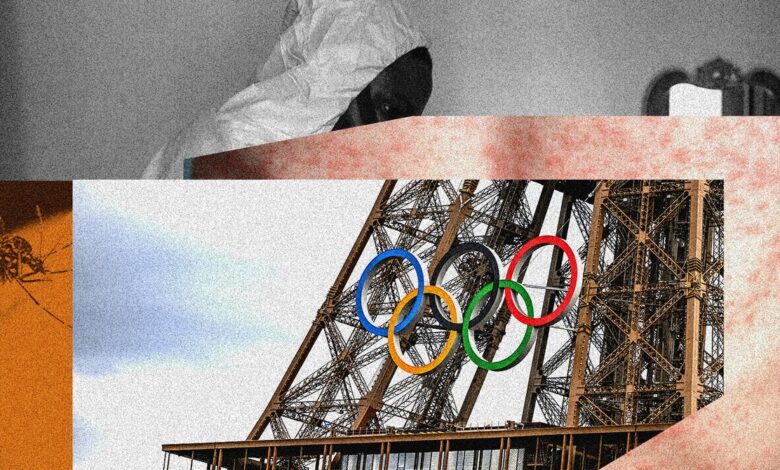Dengue Fever Threatens to Derail 2024 Summer Olympics

Every times As the Olympics approach, it seems another disease is lurking around the event. At Rio 2016 it was Zika. At the postponed Tokyo games it was Covid. And at Paris Olympics 2024 this summer? Take your pick. Authorities have been scrambling to contain both dengue and measles, which are on the rise in France and many other countries.
Millions of people from around the world will converge on the host city for the Olympics and Paralympics this summer: French authorities are preparing to welcome more than 15 million visitors to the country. Even for a capital accustomed to mass tourism—nearly 40 million people visit Paris each year—it’s a huge influx. Some will bring infectious diseases with them. Others, without sufficient immunity, risk contracting an illness during their stay. With dengue fever and measles already a problem in Paris, authorities have made plans to limit the possibility of the Games becoming a superspreader event.
“It’s very difficult to limit the risk of an epidemic when it comes to dengue,” explains Anna-Bella Failloux, a medical entomologist at the Pasteur Institute in Paris. The virus is transmitted from person to person by mosquitoes, the culprit in France being the invasive tiger mosquito, Aedes albopictus. The insect is becoming an increasing problem as the weather warms, and Europe’s hot summers are creating conditions for it to thrive. “The eggs are very durable, and the mosquito’s metabolism speeds up with temperature. The insect becomes an adult sooner, and therefore bites earlier.”
Tiger mosquitoes are not new to France: They have been present in the south since 2004 and have been present in Paris since 2015. Originally from Asia, they lay eggs in pockets of still water, which can hatch weeks later, even after the water has evaporated. This explains how the insects spread to Europe, first to Genoa, Italy, before reaching France.
Dengue fever, however, is a newer problem. With outbreaks of the virus raging in tropical regions around the world—an estimated 10 million cases worldwide this year, with South America and Southeast Asia hit particularly hard—France has seen a spike in cases. Between January 1 and April 30, 2024, health authorities recorded 2,166 casescompared with an average of just 128 cases over the same period in the previous five years. Most of the cases this year have been imported from the French overseas departments of Guadeloupe, Martinique and French Guiana, where the outbreak is still ongoing, but the European Centre for Disease Prevention and Control has recorded several cases of transmission within Europe this year, including in France.
This points to the risk of an event bringing together people from around the world at a time when cases are skyrocketing worldwide. If this increases the number of imported cases in Paris, the abundant tiger mosquito population could potentially spread the virus domestically.
For most people, infection is asymptomatic or resulting in mild fever symptomsbut in some people the disease becomes more severe and can be fatal. There is no specific treatment for the virus and few Europeans have immunity from previous exposure. Vaccines have only been available for a few years and are only available in a small number of countries with high transmission rates.




